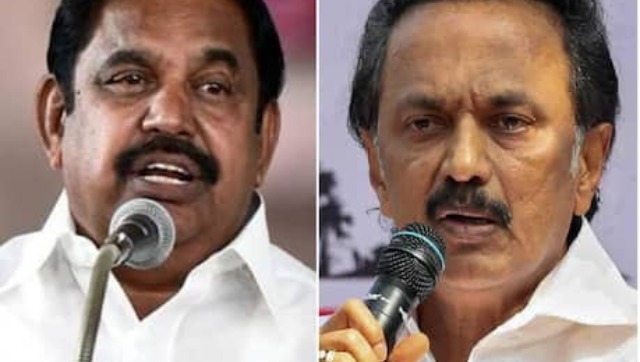The Tamil Nadu Assembly election holds particular significance this year, as this will be the first full-fledged Assembly election in the state after the deaths of political stalwarts M Karunanidhi and J Jayalalithaa. The only two electoral contests in the state after the two leaders’ deaths have been the 2019 Lok Sabha election and the bypolls that were held simultaneously. If the results of these elections are any indication, politics in the southern state continues to be largely a bipolar contest between the Dravida Munnetra Kazhagam (DMK) and the All India Anna Dravida Munnetra Kazhagam (AIADMK). In the Lok Sabha polls, the DMK-led alliance had won 38 out of 39 seats , while the AIADMK won just one seat. In the Assembly bypolls, the DMK won 13 seats as against 11 seats for the AIADMK. Such a scenario would mean that there is little hope for parties which have remained at the fringe of the state’s politics — such as the Bharatiya Janata Party (BJP) and Makkan Needhi Maiam. The bipolar nature of the state’s politics is borne out by vote shares in recent elections, as well seat-sharing arrangements made for the upcoming election. Both the AIADMK and DMK will contest in over 170 out of 234 seats — the former from 178 constituencies and the latter from 174 constituencies. If one includes the seats allocated by the AIADMK and DMK to their allies, then the two alliances will contest in 190 and 187 seats respectively. The AIADMK has allotted 23 and 20 seats to the Pattali Makkal Katchi (PMK) and BJP respectively. In 2016, the BJP had contested the Assembly election separately, but did not win any seat. In another indication of the BJP’s inability of influence the state’s politics, its ally AIADMK has promised to put pressure on the Centre to revoke the contentious Citizenship Amendment Act (CAA) . Meanwhile, this time, the DMK has allotted only 25 seats to the Congress, in an indication of the latter’s declining relevance. As noted by India Today , this is despite an invitation from Kamal Haasan’s Makkal Needhi Maiam to join his alliance. In 2016, the Congress contested 41 seats and won eight of them. The DMK also may have been wary of allotting too many seats to the Congress, considering the results of the Bihar election. In Bihar, the Congress was blamed for the Mahagathbandhan’s defeat, as it won just 19 seats out of the 70 it contested. Further, the DMK has given six seats each to the Communist Party of India (CPI) and the Viduthalai Chiruthaigal Katchi (VCK). As far as other smaller regional parties are concerned, their performances in recent elections do not suggest that they will have a significant bearing on the upcoming poll battle. The PMK in 2016 contested on its own on 232 seats, but did not win even one seat. The Puthiya Tamilagam party had allied with the DMK and the Congress but did not win any seat. However, both the Congress and BJP have been making efforts to improve their fortunes in the state. In the past two months, Rahul Gandhi has made multiple trips to Tamil Nadu to campaign for the party. The BJP, too, is actively campaigning in the state, and undertook a ‘Vetrivel Yatra’ (march of the victorious spear) in November 2020, as noted by The Print . However, it will be a tall order for both parties to make a mark in the upcoming election. The Tamil Nadu election will be held in a single phase on 6 April, and results will be declared on 2 May. While the AIADMK is eyeing a record third straight term, the DMK is keen to dethrone its traditional rival and stage a comeback to the ruling saddle after a gap of a decade. With inputs from PTI
Tamil Nadu polls: With AIADMK, DMK contesting most seats, bipolar nature of state's politics unlikely to change
FP Staff
• March 22, 2021, 14:53:03 IST
Both the AIADMK and DMK will contest in over 170 out of 234 seats — the former from 178 constituencies and the latter from 174 constituencies
Advertisement
)
End of Article